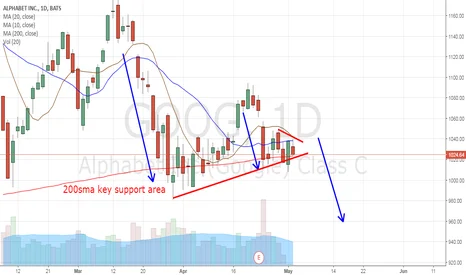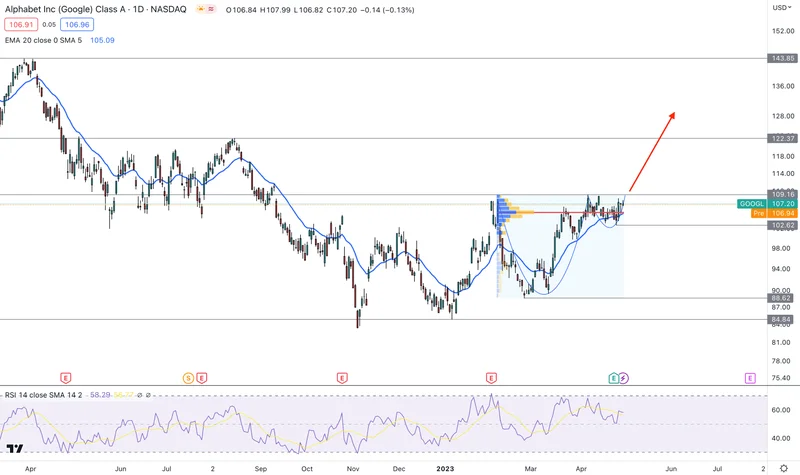GOOG Stock Sinking: Price vs. Market Sentiment
Generated Title: Did Buffett's $4.3B GOOG Bet Signal a Tech Pivot—or Just a Lucky Break?
Alright, let's dissect this Alphabet (GOOGL) situation. Buffett, the Oracle of Omaha, suddenly buys $4.3 billion worth of GOOGL stock. The timing is interesting, to say the least, with the Big Short's Michael Burry simultaneously raising red flags about accounting "fraud" among the hyperscalers. Did Buffett finally see the light on tech, or is this just a case of even a blind squirrel finding a nut?
Decoding the Buffett Buy
Buffett's historical aversion to tech is well-documented. He's famously stuck to what he knows: insurance, railroads, consumer staples. Apple (AAPL) was the exception, and even that position has been trimmed recently. So, this GOOGL buy raises eyebrows. Was it Buffett himself, or one of his lieutenants, Combs or Weschler, pulling the trigger? The source material suggests the latter, which tempers the narrative of a full-blown Buffett conversion. These guys are sharp, but they're not Buffett. Buffett's Berkshire Reveals $4.3B Alphabet Stake in Final Weeks As CEO
Berkshire's Q3 earnings showed $6.4 billion in stock purchases but a whopping $12.5 billion in sales, making them net sellers. So, the $4.3 billion GOOGL stake represents a significant portion of their buying activity, but it’s still a drop in the bucket compared to their overall portfolio. The cash pile is enormous—a record $358 billion. Buffett’s been struggling to find deals, and GOOGL, despite its size, might have looked like a reasonable place to park some cash. But, why Google, specifically?
The argument for Google is pretty straightforward: dominance in search, growth in cloud, and potential in areas like YouTube and their Tensor Processing Units (TPUs). Google search revenues rose 15% year-over-year in Q3 2025. Google Cloud revenues jumped 34% YoY to $15.2 billion. I've seen these growth stories before, and they often hinge on continued capital expenditure. Which brings us to Burry.
The Burry Paradox: Accounting "Fraud" or Just Prudent Depreciation?
Burry's accusation that hyperscalers are understating depreciation to artificially boost earnings is a serious one. He specifically calls out Alphabet, estimating they've doubled the useful life of their network/compute assets to six years since 2020. This allows them to spread depreciation expense over a longer period, inflating near-term profits. He estimates hyperscalers will understate depreciation by $176 billion between 2026 and 2028.
Now, here's the crux of the matter: is this "fraud," or simply aggressive accounting? Companies are allowed some leeway in estimating the useful life of assets. Six years for network/compute infrastructure isn't unheard of, but it is on the longer end. The question is whether Google truly believes these assets will last that long, or if they're playing games to juice the numbers. I've looked at hundreds of these filings, and the justification for depreciation timelines is often vague.

The impact is clear: higher depreciation eats into profits. We're already seeing this, with profit growth lagging revenue growth at many Big Tech companies. If Burry's right, and these companies are forced to accelerate depreciation, earnings could take a significant hit. We'll see more details emerge on November 25th, apparently.
But here's where it gets interesting: despite Burry's warnings, Alphabet shares continued their upward trend, hitting a new record high. The market cap topped $3.5 trillion. Investors seem to be shrugging off the "AI bubble" chatter, at least for now. The question is, are they right to do so?
Europe's Ire and Other Headwinds
It's not all sunshine and roses for Google. The European Commission is launching a formal investigation into Google's "site reputation abuse policy," potentially leading to fines of up to 10% of Alphabet's worldwide turnover (that's potentially $77.1 billion!). While it’s unlikely to be that high (more likely, Google will just adjust its policies), it underscores the regulatory risks facing Big Tech in Europe. This constant scrutiny is a cost of doing business, and it's something investors need to factor in.
And this is the part of the report that I find genuinely puzzling... Analysts are still largely bullish on GOOG. Weiss Ratings reiterated a "buy" rating. Oppenheimer raised their price target to $345. The average analyst target price is $324.81. Are they ignoring the potential impact of Burry's accusations and the European investigation? Or do they believe Google can weather these storms? It's a divergence of opinion that's hard to ignore.
Buffett's Timing: Genius or Just Good Luck?
So, what's the real story? Did Buffett (or rather, his investment managers) make a brilliant move by buying GOOGL, or did they just stumble into a lucky break? The answer, as always, is probably somewhere in the middle. Google has solid fundamentals, but it also faces significant headwinds. Burry's accusations, if proven correct, could throw a wrench in the works. And the European regulators are a constant threat.
Buffett's bet might pay off but, it's not necessarily a signal of a wholesale tech pivot. It's more likely a calculated risk, based on the assumption that Google can continue to dominate its core markets and navigate the regulatory landscape. Whether that assumption proves correct remains to be seen. I will still be keeping a close eye on the details that Burry releases later this month, as it might yet again ignite the AI bubble narrative, putting pressure on names like Alphabet.
A Gamble, Not a Coronation
Related Articles
Google's Stock Surge: Buffett's Bet and What It Means for AI's Future
Buffett's Bet on Alphabet: Not Just an Investment, But a Glimpse Into Our AI-Powered Future Warren B...
